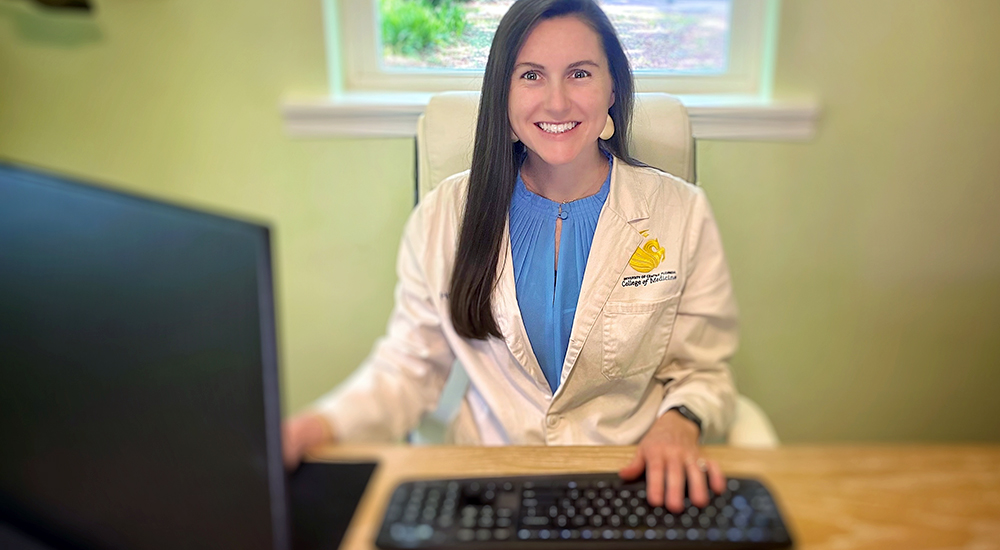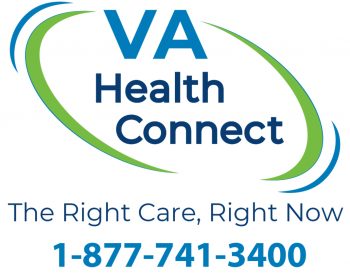VA has been a major medical teaching institution for over 75 years. More than 70% of physicians in the United States today have completed some portion of their medical training in a VA health care facility.
The delivery of care in VA has transformed and improved. As a result, medical rotations and training for students has become more innovative and unique.
The VISN 8 Clinical Contact Center is VA’s premiere, virtual urgent care service available to Veterans in Florida, South Georgia and the Caribbean. It offers this training experience through its strong academic partnership with the University of Central Florida College of Medicine.
Teleurgent care in VA medical rotation training lets students learn how to deliver care in a virtual setting by telephone and secure video.
“The idea for the training first came to light in the spring of 2020,”said Dr. Veronica Sikka, chief of Virtual Care for the VISN 8 Clinical Contact Center. “Then, the center was not even a year old. We had always envisioned the organization as a virtual academic medical center. We wanted to start on this mission early in the center’s inception.”
By May 2020, the rotation was up and running. The program accepted its first student in July.
The 4-week rotation exposes prospective physicians to various aspects of virtual care delivery to include both administrative and clinical functions. Students spend most of their time working closely with the center’s doctors and advanced nurse practitioners. They learn how to properly deliver care virtually.
They complete five eight-hour shifts per week at different times of the day to understand call volumes and trends.
Telemedicine more important than ever before
“Telemedicine has become a routine and convenient option for health care delivery,” Sikka said. “It is becoming more important than ever before that future physicians learn the value and practice telemedicine as part of their medical school curriculum.
“Other medical schools in the country offer didactic telemedicine curriculums but few offer a hands-on opportunity to see patients while on their telemedicine rotation.”
Hannah Prock, a fourth-year medical student and medical officer in the Navy Reserve (pictured above), recently completed a rotation with the center. She explained that when she learned about the opportunity, she wanted to know how it worked and experience it firsthand.
“I was intrigued by the rotation because it was a telemedicine opportunity at VA,” Prock said. “I had the chance to serve our nation’s Veterans who have devoted their lives to protecting our country.”
Prock is the daughter of a Navy Veteran. She said her father was her biggest inspiration and role model and reason for joining the military. For this same reason, she said, she aspires to become a full-time physician with VA or the Department of Defense.
“Veterans are respectful, wise, empathetic.”
“Veterans are a unique population,” she continued. “They deserve the highest level of medical care. To help Veterans virtually through this rotation meant the world to me. They are truly fantastic individuals. They’re such a respectful, wise, and empathetic population. It’s an absolute pleasure to work with them.”
She explained that her biggest takeaway from the rotation was that virtual care truly works and can be delivered as good as or even better than traditional appointments.
“I think when most people, especially the general population, think about telemedicine, some wonder about the actual benefits and efficacy in diagnosing and managing diseases,” she added. “The providers are outstanding and efficient. Patients can be seen the same day from the comfort of their home or while at work on a lunch break. It is truly something special and a realm of health care that is expanding, and for good reason.”
Prock is currently completing a non-clinical online rotation in geriatric medicine with a private clinic. She plans to begin her medical residency training in orthopedic surgery at Walter Reed National Military Medical Center in July.
The most noble mission in health care
Since the start of the VISN 8 Clinical Contact Center’s medical rotation program, 10 students have completed the training. They’ve served about 750 patients; they saw 30% of them via secure video. The center’s leaders hope to expand the program to accept more students and include medical residents in the rotation.
“Any time we can shape the hearts and minds of our nation’s future doctors and expose them to the most noble mission in health care is time well spent,” said Suzanne M. Klinker, deputy network director for Clinical Contact Center, VISN 8. “Like Hannah, our ultimate goal is to help the students develop into high-performing, dedicated professionals who aspire to make a career in VA and who strive to provide the very best care to America’s Veterans. I certainly believe we are accomplishing that. I am excited for what the future holds as we train more students and look to expand the program.”
Learn more about the VISN 8 Clinical Contact Center and the services it provides.
Topics in this story
More Stories
Bob Jesse Award celebrates the achievements of a VA employee and a team or department that exemplifies innovative practices within VA.
The Medical Foster Home program offers Veterans an alternative to nursing homes.
Watch the Under Secretary for Health and a panel of experts discuss VA Health Connect tele-emergency care.







